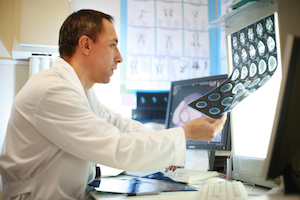A trial to enforce the sale of the NBA’s Los Angeles Clippers may turn on expert witness reports regarding the mental health of recently disgraced owner, Donald Sterling. Following racist and disparaging comments made by Sterling, the league banned him from any basketball related activities before issuing an order for him to sell the team. With Sterling’s refusal to agree to a $2 billion sale of the Clippers negotiated by his estranged wife, who has an ownership stake in the franchise, a California court will determine if Sterling’s mental health justifies his removal as a trustee.
Expert Witnesses Key to Determining Sterling’s Mental Health
Shelley Sterling negotiated a $2 billion deal selling the Clippers to Microsoft mogul Steve Balmer within weeks of the NBA’s decision to force Sterling out of the league. Shelley, by virtue of California’s law on marital property, has an ownership stake in the franchise, but cannot finalize the agreement without Donald Sterling’s consent. With Mr. Sterling refusing to sign the deal, Shelley has taken the matter to court by asking a judge to declare Donald mentally unfit to act as a team trustee.
Central to the legal battle regarding the sale of the Clippers are reports from three different medical expert witnesses who found that the 80-year-old Sterling has shown symptoms of Alzheimer’s disease and dementia. Shelly Sterling hired doctors to conduct an analysis of her husband’s mental health because a clause in the trust both spouses signed in December allows for one to remove the other if two board-certified doctors offer a written report indicating mental incapacitation. Claiming that the $2 billion sale is in the best interests of all parties, Shelly is taking action to remove her husband in order to close the deal without requiring his involvement.
Donald Sterling Seeks Mental Health Expert Witness
Despite the expert medical reports diagnosing him with early signs of Alzheimer’s and dementia, Sterling maintains that he is of sound mind. He has promised to defend himself in the lawsuit for control over the Clippers, and recently requested the Court delay the hearing until he can present testimony from his own medical expert witness who is prepared to contradict reports regarding his mental condition. Sterling has hired Dr. Jeffrey Cummings, a neurologist from the Cleveland Clinic, to conduct a preliminary assessment and offer testimony that he is mentally sound and capable of running his franchise and estate.
Whether or not Donald Sterling’s expert witness will matter is still unclear as Judge Michael Levanas has already indicated that the case seems pretty clear. With two medical expert reports certifying Sterling’s incapacity to make decisions regarding the trust he and Shelly co-own, the language of the trust agreement may clearly control matters regardless of what Sterling offers in his defense. Sterling’s attorneys responded to Judge Levanas by arguing that the parties unintentionally omitted a provision in the trust that permitted reinstatement if a certificate of mental capacity is submitted – making the use of Dr. Cummings’ expert testimony critical.
Matters of mental incapacity are delicate, and competing expert witnesses are not uncommon – particularly when billions of dollars are at stake. As the Donald Sterling situation continues to escalate into increasingly contentious waters, how Judge Levanas uses the medical expert witness reports at his disposal will be critical in the decision to remove Sterling’s control of the Clippers and allow the $2 billion sale to proceed despite his objections.













